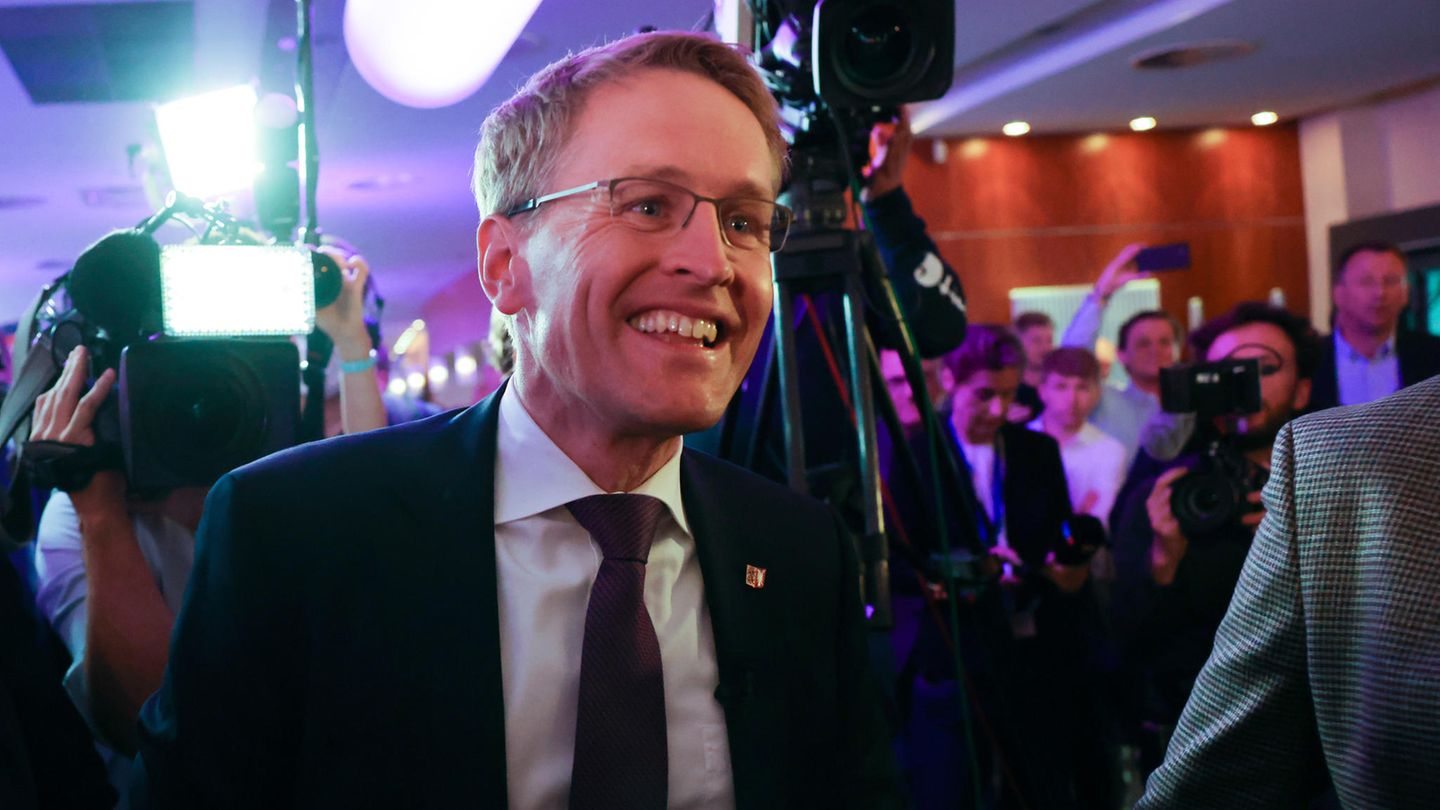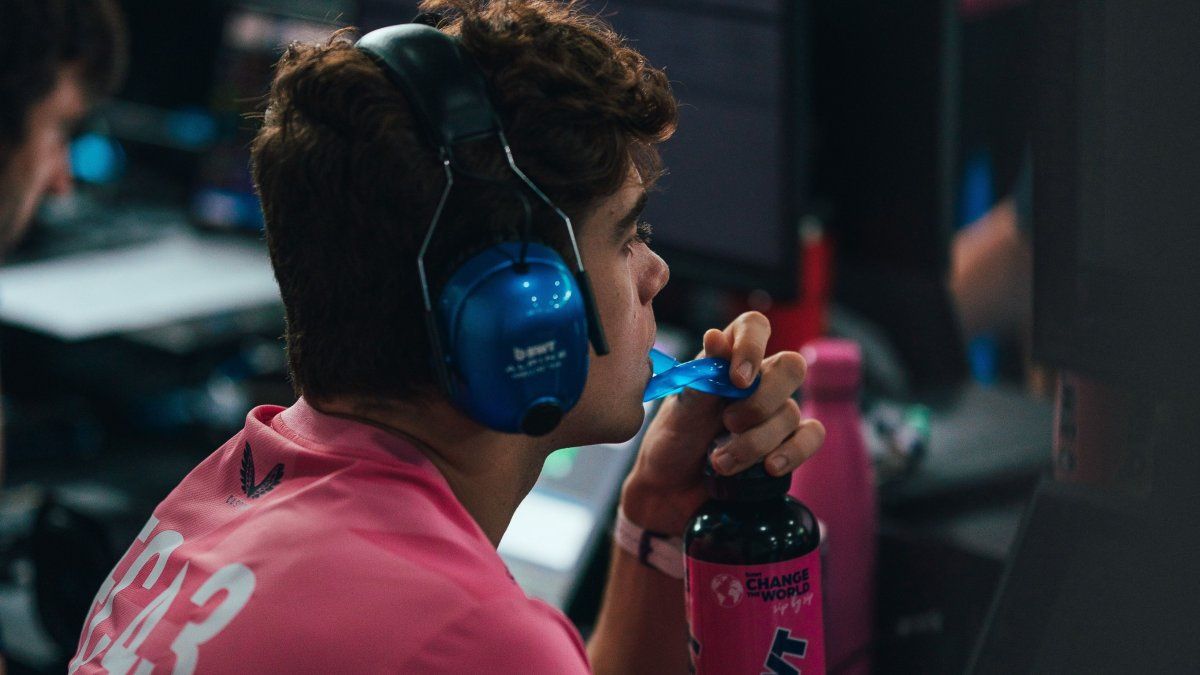The old and new Prime Minister in Schleswig-Holstein only allows a glimpse into his emotional world for a moment. He was “touched” by the outstanding result. But even in the hour of his greatest triumph, he does not want to hide his nature.
He always appears calm – but this time Prime Minister Daniel Günther’s emotions are noticeable. The winner of the state elections in Schleswig-Holstein reacted to the thunderous applause of his CDU supporters with a recognizable deep joy. He was “touched, also personally,” by the support of the voters, he says.
But Günther, who has been in power in Kiel since 2017, would not be himself if he did not quickly regain his composure and focus on the essentials: It was “perfectly clear” that he would talk to the Greens and FDP about the new state government in the coming days will speak. There is no trace of triumph for the man who is responsible for the best CDU result in 40 years and can now govern with just one coalition partner.
With his reserved manner, 48-year-old Günther is well received in Schleswig-Holstein. For him, a “strong man” has nothing to do with “putting on fat pants,” Günther said in an interview a few years ago.
However, this does not mean that the married father of two daughters who lives in Eckernförde is not a full professional. It is wrong to accuse him of a lack of assertiveness, he said recently. But it doesn’t help in politics to “yell around loudly”. It’s always about “convincing people” and “bringing opinions together”.
Günther spends his entire professional life in the CDU
Günther has already spent his entire professional life in the CDU, he was state manager and has been a member of the state parliament since 2009. From 2014 to 2017 he was the leader of the CDU parliamentary group and thus also the leader of the opposition, before ousting his predecessor Torsten Albig from the SPD from the Kiel State Chancellery in 2017 and taking over the helm. The year before he had also become CDU country chief.
The rise to the post of prime minister came as a complete surprise to some at the time. Günther was more likely to “step in” after the then CDU top candidate and state chairman Ingbert Liebing gave up just under half a year before the election. In his party, he was also considered to be more of an emergency nail.
After the successful election in 2017, however, the political scientist, with his moderating and rather presidential manner, worked purposefully towards a new type of coalition with the Greens and the FDP, which governed without any problems and maintained a balanced approach – that was not always the case in the far north.
Coalition partners pulled together
And this mood endured. Despite a few conflicts on factual issues, the three partners pulled together, which was also noticeable in a decidedly fair election campaign. Principal dividing lines could not be discerned. In addition to the Greens, the CDU and FDP also see the energy transition as an almost unique opportunity for the state to become prosperous as a wind power producer.
Günther, who is a devout Catholic and sits on the Central Committee of German Catholics, also found his positions in socio-political terms. From his time as leader of the opposition in Kiel, it is still remembered that against the background of the refugee crisis, he submitted an application for pork dishes in canteens, which earned him the accusation of right-wing populism.
Today Günther stands for a liberal-progressive CDU. Among other things, he campaigned for gay marriage, which was highly controversial in his party. Günther hits the mood, he is currently the most popular prime minister in Germany. In Schleswig-Holstein, three quarters of the people are satisfied with it.
Some in Berlin are already wondering whether Günther would not also be a candidate for more – a successful prime minister with high personal approval ratings could also be named at some point in the search for the Union’s next candidate for chancellor. But in Kiel it is first about another question: the winner of the election must decide wisely with whom he wants to form the next state government.
Source: Stern
David William is a talented author who has made a name for himself in the world of writing. He is a professional author who writes on a wide range of topics, from general interest to opinion news. David is currently working as a writer at 24 hours worlds where he brings his unique perspective and in-depth research to his articles, making them both informative and engaging.




